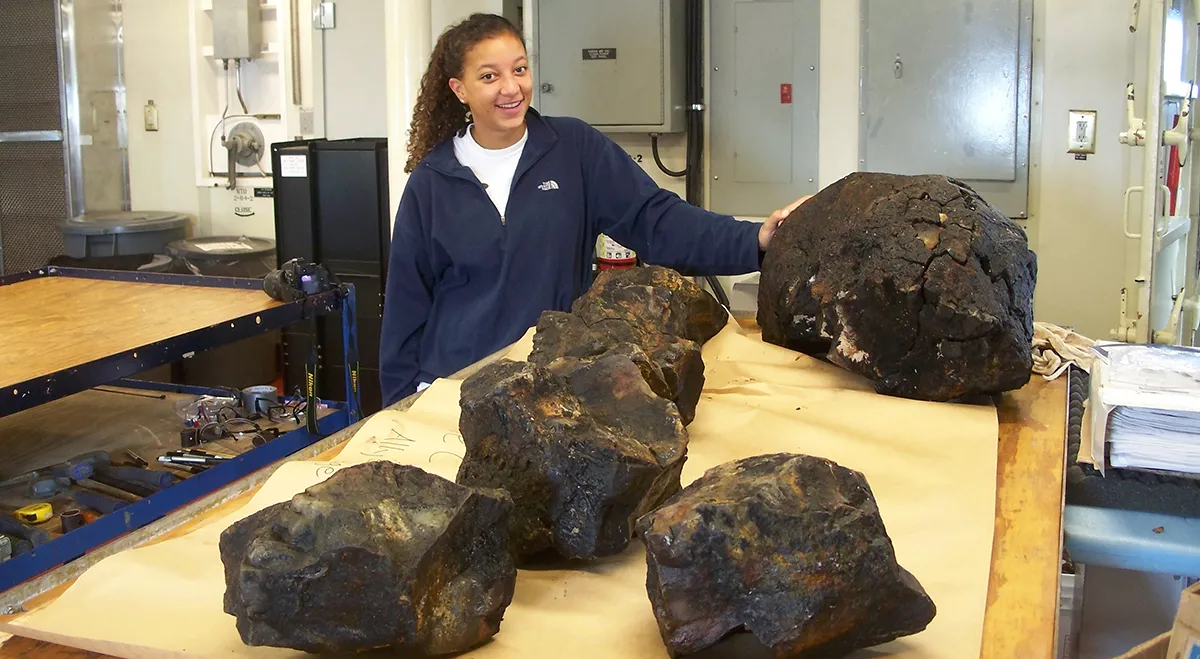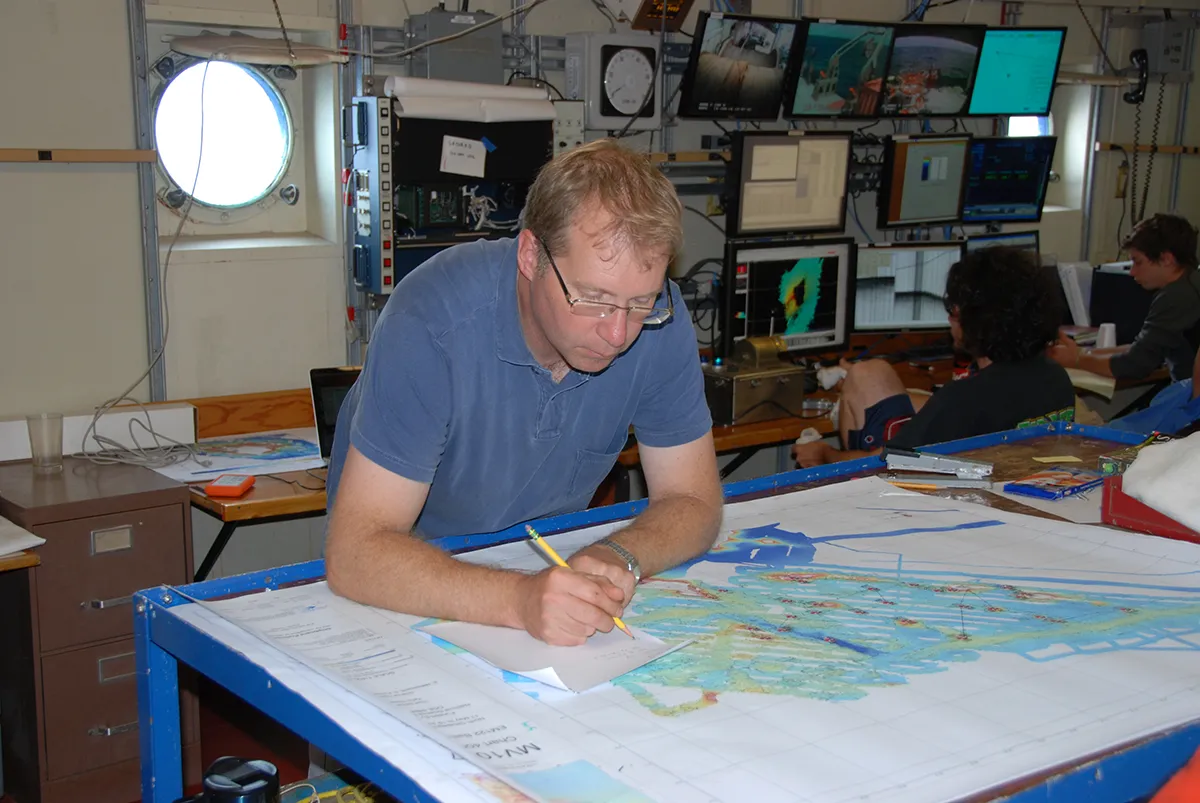Ever since Chris Sinton, associate professor and chair of the department of environmental studies and sciences, began studying Galapagos seamounts — underwater mountains of volcanic origin — as a graduate student at Oregon State University, he’s wanted to learn more about the seafloor and marine ecosystems. After participating in a research cruise to an area just north of the Galapagos Islands in 2010, it’s become a focus of his research.
Now, thanks to an $83,000 grant from the National Science Foundation (NSF), not only is he going to get the chance to study rock from the area in-depth, several students are going to get an opportunity to help him.
In collaboration with Colgate University, Sinton will be analyzing volcanic rock recovered from seamounts east of the Galapagos Islands for age and geochemical composition. The hope is that the research will provide insight regarding marine ecosystems and interior earth studies in general.

